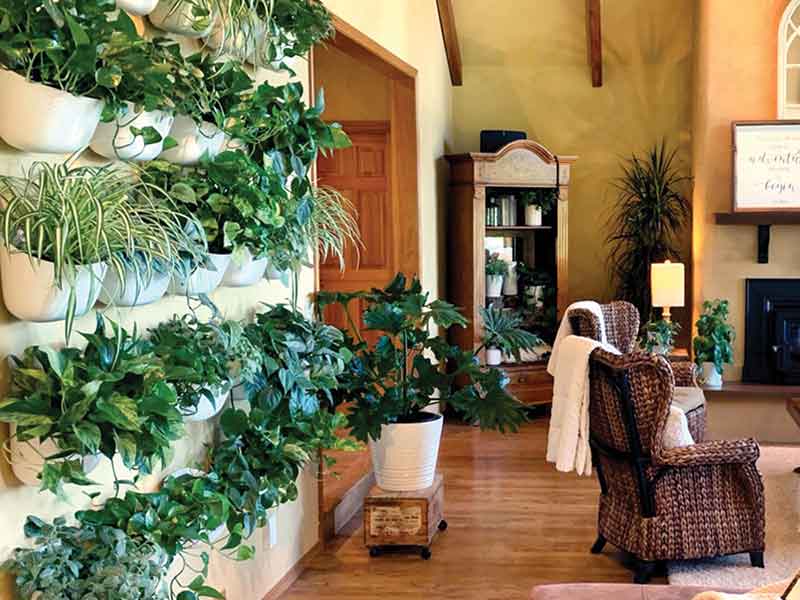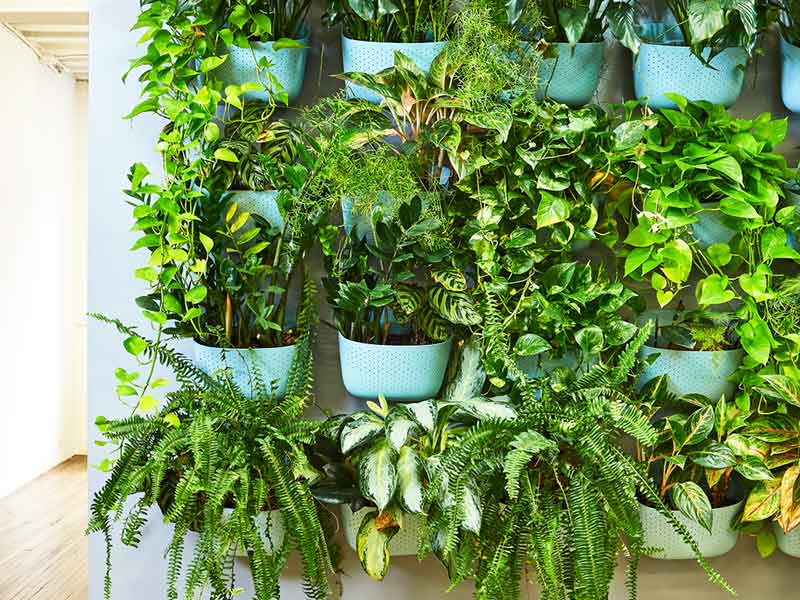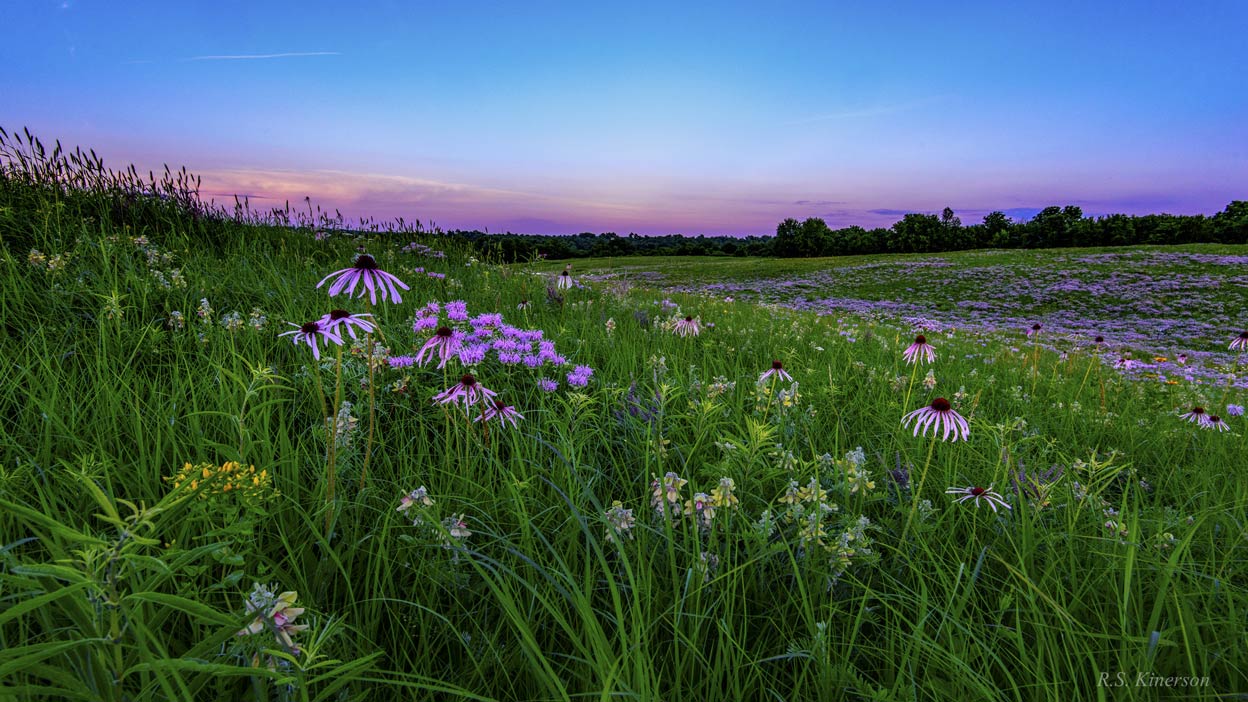This article was originally published in our July/August 2021 issue.
If you have a green thumb and not enough floor space, WallyGro might be your new best friend.
WallyGro, a wall planter company based in Kansas City, makes planters with 100 percent recycled material. In addition to promoting sustainability, the company emphasizes plant health above all, expanding on the passion of “plant parents” who only want the best for their greenery.
The design of the planters allows for more breathability by draining the plant properly and preventing root-rot, says Callie England, president of WallyGro. “The number one email we probably get is, ‘Why do my plants love this planter; why do they grow so effortlessly?’ ”
“You see a lot of cute wall planters out there,” she says, “but the fact that ours was designed with the mindset of the plant health first and foremost has really been a huge success point for us.”
The WallyGro concept started in events, and the original felt pockets were used to bring the company’s “living walls” to weddings and other events. The celebrations brought in so many people, Callie says, that the attendees started asking questions about the planters and how they could get a living wall at home.

Elise Grosdidier, brand manager at WallyGro, says the commercialization of the “jaw-dropping installs” people saw at events is what spurred the idea for a more attainable wall planter. The original felt pocket geared toward professional trade projects, so the Wally Eco was created as a wall planter that’s accessible for homeowners.
The Wally Eco, the standard wall planter, and the Wally Loop, a hanging planter, are made from recycled plastic found in bottles, such as shampoo bottles and milk jugs. The Wally Pocket is made from a special felt, which is made by transforming the plastics in water and soda bottles into a softer material. The WallyGro website claims the company has saved more than eight million water bottles from the landfill.
In addition to incorporating recycled materials into its planters, WallyGro uses natural macrame rope for the hanging Loop planter and tries to cut down on the frills of shipping waste, Callie says, such as excess packaging. Material sourcing, order fulfillment, shipping, and the fabrication of Wally Pockets is done in Kansas City. Additional sourcing and fabrication is done in California, North Carolina, and New Hampshire.

“The Eco is really the product that is attainable, affordable, and easy,” Elise says.
Overall, WallyGro is feeding a movement that is as trendy as it is environmentally mindful, and that movement is growing. WallyGro currently ships to over 176 countries, and prior to the pandemic, most shipments were made to larger cities where people were more likely to live in smaller apartments with less floor space, Elise says. But during the pandemic, sales grew and spread out across the country as more people started looking for a hobby, gravitating toward gardening.
“That’s a beautiful thing,” Elise says. “It truly is for everybody.”
Learn more at WallyGro.com.
Related Posts
Here’s Our Guide to Growing Native Plants
By landscaping with native Missouri plants, gardeners with the palest of green thumbs can enjoy such views just like the pros, all while knowing they’ve done their part to nurture complex ecosystems.
Go Wild (or Wild-like) With Your Landscape
Native and natural landscapes are not the same. They require different considerations, plant selections, and maintenance.
Less Soot and Smoke
Candles and wax with less smoke and soot are created at Overland.



